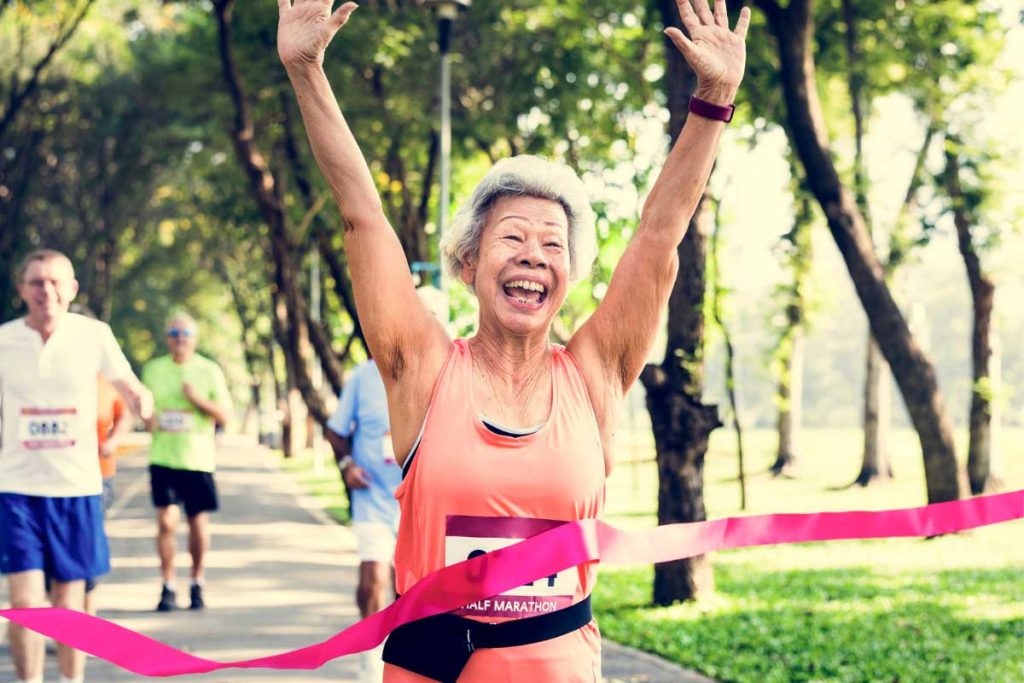Menopause is a marathon, not a sprint. You have the opportunity to enhance your health and well-being for the rest of your life. And, just like the 26-mile run, preparation for the “Menopause Marathon” is key to reaching the finish line. Focus on your body, mind, and spirit so you can prepare for menopause and feel your best during this natural stage of life.
Preparing for menopause
- Understand that menopause journeys are unique.
- Assess your current lifestyle in areas like eating habits, physical activity, sleep, and stress. Make a conscious commitment to actions that science and research have proven will be of benefit.
- Mind your mindset.
- Build and strengthen your support system and friendships.
- Research treatment options and understand the risks and benefits of hormone therapy compared to non-hormonal options such as integrative modalities like acupuncture.
- Find a doctor who listens and is interested in helping to support you during this stage in your life. That may not be the PCP or OB-GYN who has always cared for you, as they may not have adequate training in managing menopause. Consider a menopause professional certified by The Menopause Society or a practitioner of integrative medicine who treats with a holistic perspective of the whole person.
Menopause journeys are unique
In a study in North America and Europe, menopause symptoms were more common in women from the U.S., UK, and Canada than in women living in Sweden and Italy.
- drank alcohol moderately or heavily
- suffered from depression or anxiety
- were obese
- were in poor health
- smoked
Lifestyle changes that help menopause symptoms
“I wish I knew that what I was doing in my own lifestyle was impacting what was going on. I had to be reactive rather than proactive. If people knew about this before they ever get to perimenopause, they might be saving themselves potential problems, as far as the hormone imbalance or like heavy bleeding or hot flashes, and the like. It may not save them. It may decrease them, or it may prevent them altogether,” the woman explained.
Manage stress
The menopause journey can be stressful. Contributors include not only the symptoms themselves but also other life events that are common in one’s 40s and 50s, e.g., sandwiched between kids and elderly parents, career advancement efforts, empty nest syndrome, and the self-reflection that can be triggered during midlife.
Stress can impact the entire body and your emotional health, as well. It can complicate or accentuate the symptoms you may experience.
For those who may be at greater baseline levels of stress or carry a significant degree of chronic stress, the impact can be significant and literally take years off their lives. For example, studies show the “weathering” effect related to racism seen in Black women leads to earlier and faster aging and a biological age that is 2.6 years older than their chronologic age! In contrast, white women, who are not impacted by racism, have been noted to have a biological age that is 3.5. years younger than their chronological age. The overall impact is a 6.1-year biological age difference between Black and white women!
And if you are biologically older, the onset of menopause may occur at an earlier chronological age, increasing the number of years of increased risk of conditions like hypertension, heart disease, and diabetes.
Interestingly, a study produced through a collaboration between The FemAging Project and AARP found Black and Hispanic women had greater concerns about stress than other racial groups.
Learning to manage your stress and working toward work-life harmony rather a perfect work-life balance are important not just to your menopause journey experience but your overall health and well-being, both now and in the future. Take time to notice when things are headed in the wrong direction, and make adjustments to help you get back on track.
Practices like mindfulness, guided imagery, and the emotional freedom technique (EFT), also known as tapping, can help ease symptoms.
In addition to developing coping skills and managing stress, other components of a healthy lifestyle – eating habits, tobacco and alcohol consumption, physical activity (level, type, frequency, and duration), getting enough high-quality sleep, having a network of support and a feeling of community – can all make a huge difference as you move through the menopause journey.
Healthy eating during menopause
For some, caffeine, alcohol, and spices become problematic, serving as a trigger for hot flashes. And there are also foods to avoid to help manage symptoms.
Maintaining a healthy weight is important at any time, but even more so during the hormonal transition when weight gain is common. Besides the increased risk of conditions like diabetes, metabolic syndrome, hypertension, and cancer, women+ who are obese have been reported to have more intense/severe and frequent vasomotor symptoms (VSMs) like hot flashes, night sweats, and palpitations. In turn, more challenging VSMs can result in problems with sleep which can lead to fatigue, worsened brain fog, and possibly a potential increased risk of dementia in the future.
Dietary changes can help not only with menopause but the aging process as well. Studies suggest a Mediterranean diet can slow down aging and help protect against chronic conditions, the development of frailty, and premature death.
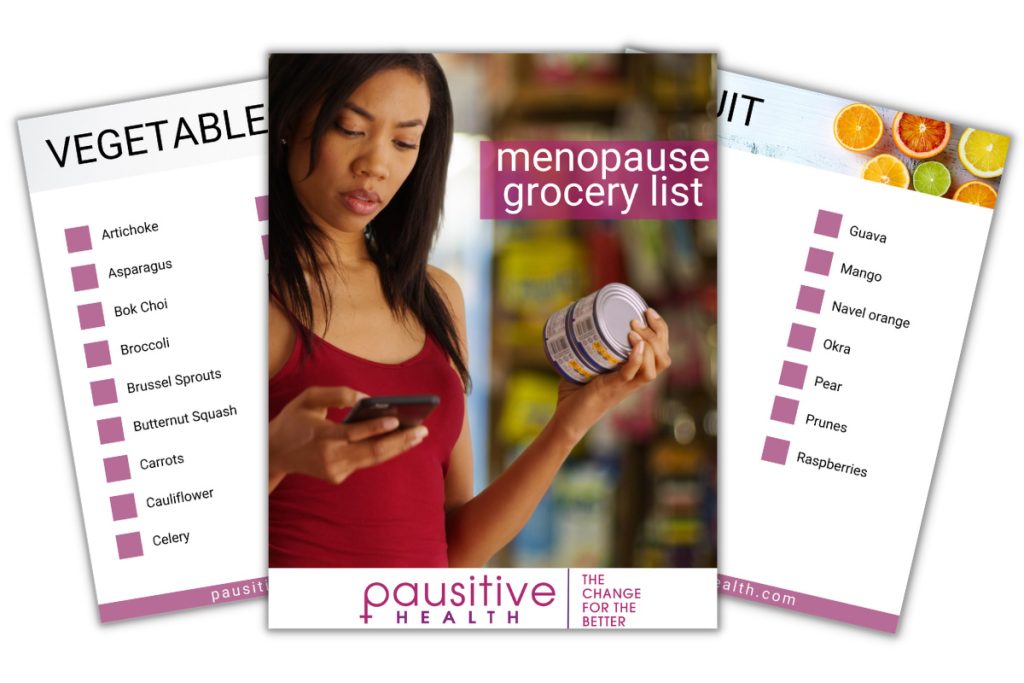
Make A Change For The Better!
This menopause grocery list contains a combination of foods specifically selected to help you feel better today and even better in the future.
"*" indicates required fields

Exercise during menopause
- more sustainable weight management and lower risk of obesity
- stronger bones and a lower risk of osteoporosis and associated fractures
- stronger muscles, better balance, and a lower risk of falling
- greater flexibility
- greater emotional and mental health and better management of depression, anxiety, and stress
- better quality sleep and greater energy and focus
Incorporating physical activity into your life at the levels recommended (up to 150 minutes each week, depending on the intensity) can come in a variety of ways. It’s important to engage in activities you actually enjoy in order to make it easier to stick with it over time. If you love going to the gym, great. But dancing, paddleball, boxing, golf, gardening, swimming, and walking all count and have different benefits to offer.
For example, a recent study has shown that yoga can help against the development of frailty as we age. It increases two factors associated with less frailty and increased longevity – walking speed and the ability to rise from a chair.
Remember to include a combination of exercises – cardio/aerobic, strength training, balance, and flexibility. Studies have also shown that the equivalent of 10,000 steps per day is not needed to reap maximum benefits. The sweet spot seems to be between 6000 and 8000 steps, at which point the positive impact tends to plateau.
If you have not been active for a while, then you’ll need to gradually increase your activity level over time. And keep in mind, some physical activity is better than no activity. Even 10 minutes a day can make a difference.
Be sure to check with your healthcare practitioner before embarking on an exercise regimen to identify together what might work, precautions you might need to take, and any areas on which you should focus more than others.
Pay attention to your sleep
More and more research points to the importance of getting enough high-quality sleep and the negative consequences when we don’t.
Besides providing rest for our bodies, sleep helps clear our minds of clutter, seals memory, helps to maintain our cognitive abilities, and reduces the risk of dementia. Studies show it also impacts our longevity. Five factors of quality sleep were shown to make a difference when it comes to helping to prevent premature death.
The five factors were:
- having a sleep duration of seven to eight hours a night
- having problems falling asleep no more than two times a week
- having problems staying asleep no more than two times a week
- not using sleep medications
- feeling well rested after waking up at least five days a week
The research showed that “out of all deaths, 8% could be attributed to poor sleep patterns.” Women who scored well in the five areas had a life expectancy that was 2.4 years longer than those who did not.
Unfortunately, many of the symptoms women+ experience during the menopause journey can make getting enough high-quality sleep challenging – hot flashes, night sweats, stress, fatigue resulting in less motivation for physical activity, depression and anxiety, and muscle aches and pains, along with other symptoms like reduced muscle strength and osteoporosis known as the musculoskeletal syndrome of menopause.
And if you fall into habits like caffeine for energy or to stay awake and alcohol to help you go to sleep (temporarily and followed by disruption from awakening later in the night), all can negatively impact your ability to sleep well.
In turn, poor sleep can make menopausal symptoms worse – hot flashes, irritability, depression, and brain fog. And sleep issues can lead to weight gain due to hormonal disruptions involving leptin and ghrelin. Leptin signals satiety (feeling full), and poor sleep can lower leptin levels. Ghrelin increases appetite, and sleep issues can increase ghrelin levels.
Chronic stress can also lead to increased levels of the hormone cortisol, which signals the body to conserve energy and translates into the body holding on to fat.
There are many steps you can take to help you get enough high-quality sleep:
- sleep hygiene (e.g., regular bedtime every day, room temp set to 66 degrees, no blue light devices, a bedtime routine to signal the body it’s time to sleep, no large meals/caffeine/alcohol late in the day, no exercise 3 hours before bedtime)
- binaural beats
- tryptophan containing foods, e.g., turkey, cheese, milk
- tea – chamomile, decaf green, lavender, passionflower, valerian
- tart cherry juice
- gentle yoga or yoga nidra
- cognitive behavioral therapy (CBT)
Make a change for the better with your mindset
Your mindset can have a significant impact on your menopause journey.
In our survey of women+ in all stages of life, one woman took advantage of her heightened self-awareness to turn this life change into a positive force.
“Menopause can be a rebirth or rediscovery of who you are as a woman. It doesn’t have to be an ending but a new beginning for women. Standing up for themselves, coming into themselves, their power, their self-worth. A time of rediscovery,” she explained.
Her view is one that is commonly seen in some cultures, like the Mayans in Mexico, in Nigeria, Indigenous women in Canada (Maori and Koori), and the Mosuo in China. And the Japanese word for menopause, “konenki,” means a time of renewal and energy.
In another study, the Yale doctor who led the research found menopausal symptoms were less of an issue in countries where older women are considered wiser and are more highly regarded in general. In countries where phrases like “old age” are attached to the life cycle of women, symptoms were often more pronounced.
“They learn to have a greater awareness of how all the stuff that happened in their lives comes to a head. And they’re doing a reflection on what all that was, and what they won’t put up with in their lives, and what they’ll change and start taking care of themselves and to not worry about taking care of others,” she explained.
Ways to shift your mindset during menopause
Taking steps to prepare proactively will help you weather the challenges menopause may throw your way.
Emotional strength when symptoms start will help you finish the race even stronger.
Life is changing, so avoid comparing your current reality to “how I used to be.”
Recognize your journey is unique and be open to the possibility you may emerge healthier, happier, energized, and more confident and content with the road ahead.
Think beyond traditional medicine, even if you’ve never considered alternative options. Now is a great time to broaden your horizons and explore non-hormonal techniques like acupuncture, mindfulness, meditation, journaling, practicing gratitude, guided imagery, tai chi, yoga, qigong, herbal medicine, and massage.
Be open to trying new things. What may not work for someone else may work for you. There is no one-size fits all approach for the menopause journey.
Use humor. Laughter is often the best medicine. Don’t forget to tap into it.
- Build and strengthen your support system and friendships.
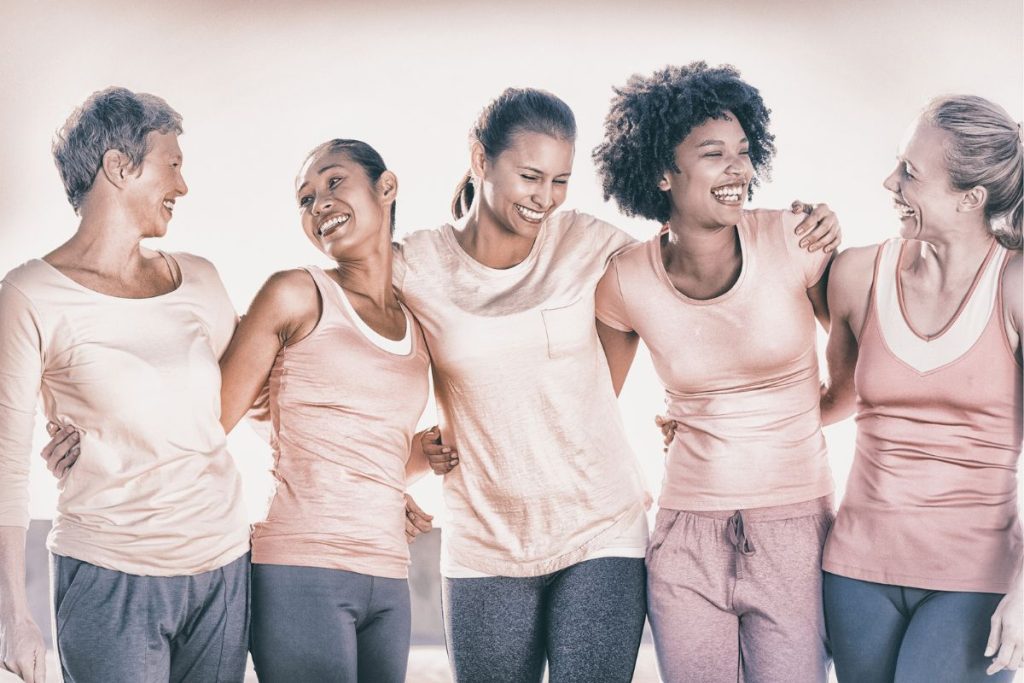
Change your mindset with humor
“I rely on my girlfriends,” one respondent explained. “Having someone who went through a similar surgery as I went through, that’s been very helpful. It’s like a pseudo support group even though it’s just the two of us.”
Don’t let menopause stigma tell you how to feel
“Women go through the change, they’re moody, their sex drive changes, they’re empty nesters wrapped around in there or the cougar type of morphication,” explained a nurse in the survey.
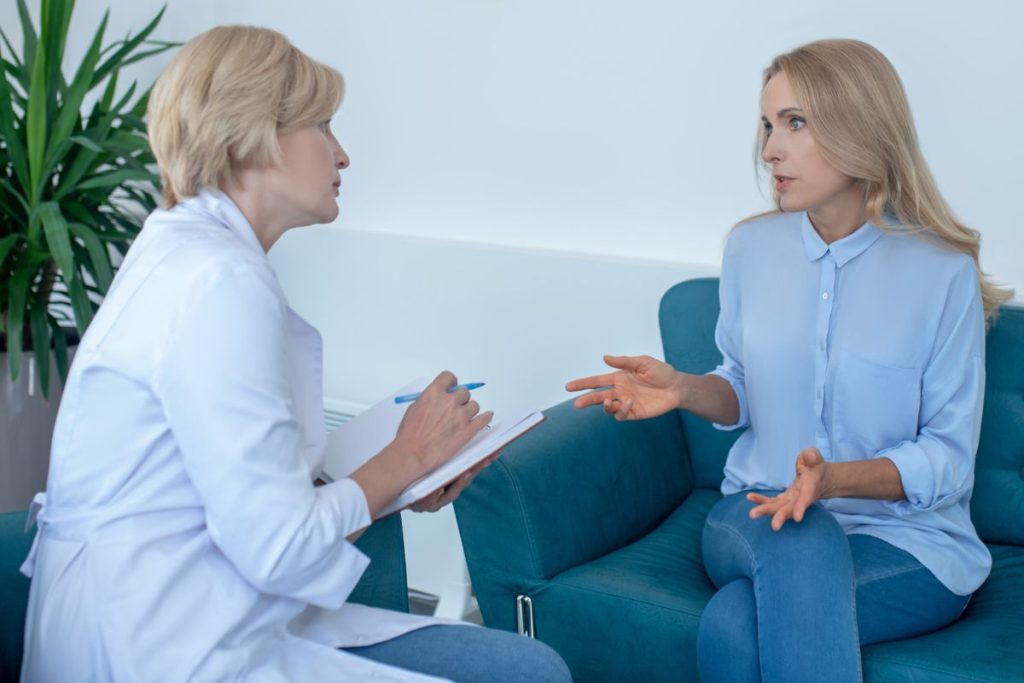
Find a team of professionals, including a menopause doctor
“He was really good about basically assisting or guiding you if you were a medical-based kind of person, or were OK with medicine, he would steer you in that direction. But, if you were more of a natural type person, he was OK with that too. And would assist you in that way,” she commented.
“He also respected the fact that I was in the medical profession, and I kind of knew my body. If I was way off base, of course, he would say so, but a lot of the time, if I wanted to try this or that, he was OK with that,” she explained.
Finding a doctor who specializes in menopause
Menopause treatment options
“There’s just more of the things women don’t want. Like here’s the pill you can take, or here’s the procedure we can do. And that’s usually where it ends with providers when we don’t want to get into hormones. That’s the conventional way they’ve been taught. And that’s not what a lot of people want,” she explained.

Menopause roadmap
Preparing for menopause
Be proactive. Ask questions and avoid a one-size fits all approach.
Educate yourself about your options - lifestyle changes, non-hormonal techniques, hormones, and other medications.
Get the latest recommendations regarding hormone therapy (HT) if it is a consideration for you. There are a lot of factors to consider, and the treatment algorithm is complicated.
Find a practitioner with whom to collaborate, who you trust, who really listens, and who has the skills to help address the myriad symptoms women can face during this time in their lives.
Finally, establish a support system. Just like in a marathon, you need people cheering you on. Find people who inspire and motivate you. While your healthcare practitioner is an essential member of your team, so are friends and other “runners” in the menopause marathon.
“We learn from each other and other women all the time as far as their experience. And always be cognizant that everybody’s experience is their experience and is unique to them,” one woman said.
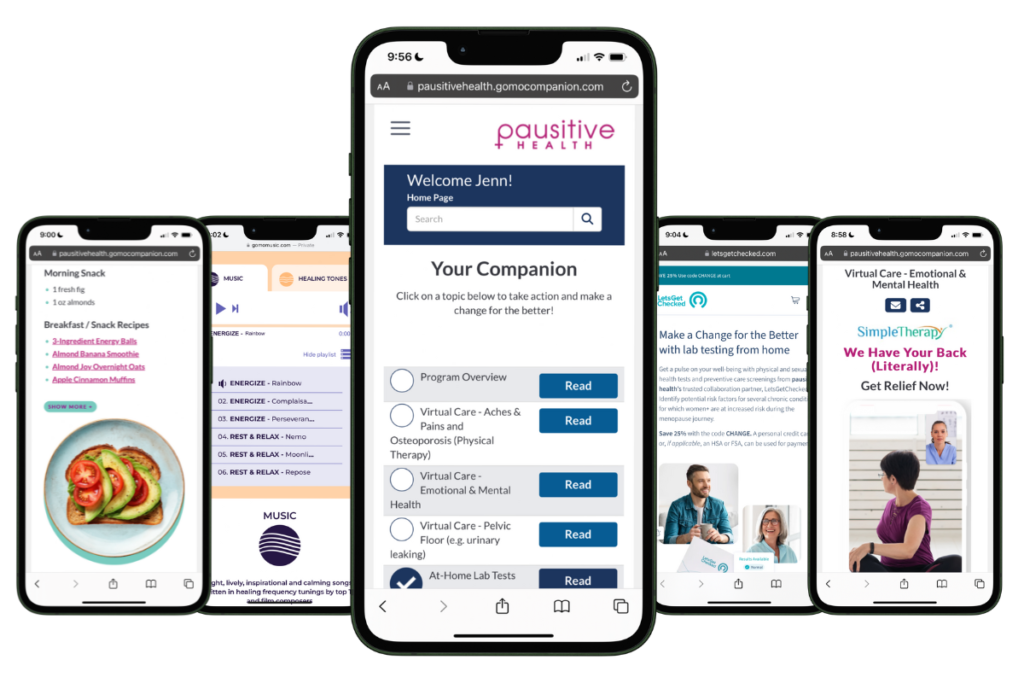
Free Support
For Your Menopause Journey!
Only available for a limited time!
Access a one-stop menopause journey digital destination that provides personalized text messages that focus on educational topics you select and offers many other features such as a diet assessment with recommendations, solutions from collaboration partners to address menopausal aches and pains (the musculoskeletal syndrome of menopause – MSM), pelvic floor issues, virtual care, lifestyle tools, and a supportive community.
Armeni E, Mili N, Siliogka E, Goulis D, Lambrinoudaki I. Menopause medical education around the world: The way forward to serve women’s health. Current Opinion in Endocrine and Metabolic Research. 2022. Vol 26, pages doi: https://doi.org/10.1016/j.coemr.2022.100387
Find a Menopause Practitioner | The Menopause Society
Find a Practitioner | The Institute for Functional Medicine®
Green R, Santoro N. Menopausal Symptoms and Ethnicity: The Study of Women’s Health across the Nation. Women’s Health. 2009;5(2):127-133. doi:10.2217/17455057.5.2.127
Culture may influence how women experience menopause | Reuters
University of Pittsburgh Schools of the Health Sciences. Certain characteristics predispose women to different hot flash, night sweat patterns. ScienceDaily. ScienceDaily, 13 July 2016.
Sapre S, Thakur R. Lifestyle and dietary factors determine age at natural menopause. J Midlife Health. 2014 Jan;5(1):3-5. doi: 10.4103/0976-7800.127779. PMID: 24672198; PMCID: PMC3955043.
Endometrial ablation | Mayo Clinic
Forrester S, Jacobs D, Zmora R, Schreiner P, Roger V, Kiefe CI. Racial differences in weathering and its associations with psychosocial stress: The CARDIA study. SSM Popul Health. 2018 Nov 6;7:003-3. doi: 10.1016/j.ssmph.2018.11.003. PMID: 31294072; PMCID: PMC6595283.
New HealthTech Report Challenges Perceptions About Women Ages 40+, Health, Wellness, and Technology | Newswire
Healthy Lifestyle Tips to Manage Stress | PeopleTweaker
Kroenke CH, Caan BJ, Stefanick ML, Anderson G, Brzyski R, Johnson KC, LeBlanc E, Lee C, La Croix AZ, Park HL, Sims ST, Vitolins M, Wallace R. Effects of a dietary intervention and weight change on vasomotor symptoms in the Women’s Health Initiative. Menopause. 2012 Sep;19(9):980-8. doi: 10.1097/gme.0b013e31824f606e. PMID: 22781782; PMCID: PMC3428489.
Tang, R., Fan, Y., Luo, M., Zhang, D., Xie, Z., Huang, F., Wang, Y., Liu, G., Wang, Y., Lin, S., & Chen, R. (2022). General and Central Obesity Are Associated With Increased Severity of the VMS and Sexual Symptoms of Menopause Among Chinese Women: A Longitudinal Study. Frontiers in Endocrinology, 13. https://doi.org/10.3389/fendo.2022.814872
Straight Talk About Soy | Harvard T.H. Chan School of Public Health
Capurso C, Bellanti F, Lo Buglio A, Vendemiale G. The Mediterranean Diet Slows Down the Progression of Aging and Helps to Prevent the Onset of Frailty: A Narrative Review. Nutrients. 2019 Dec 21;12(1):35. doi: 10.3390/nu12010035. PMID: 31877702; PMCID: PMC7019245.
Women who adhere to Mediterranean diet have 24% lower CVD risk | Healio
Food Is Medicine: A Healio guide to diets | Healio
Physical Activity for Adults: An Overview | Centers for Disease Control and Prevention
Strong evidence that yoga protects against frailty | The Harvard Gazette
Paluch A, Bajpai S, Bassett D, Carnethon M, Ekelund U, Evenson K. Daily steps and all-cause mortality: a meta-analysis of 15 international cohorts. The Lancet Public Health. 2022. Vol 7, Issue 3, E219-E228. https://doi.org/10.1016/S2468-2667(21)00302-9
Saint-Maurice PF, Graubard BI, Troiano RP, et al. Estimated Number of Deaths Prevented Through Increased Physical Activity Among US Adults. JAMA Intern Med. 2022;182(3):349–352. doi:10.1001/jamainternmed.2021.7755
Want to live longer? These 5 sleeping habits are the way to do it, scientists say | World Economic Forum
Getting Good Sleep Could Add Years to Your Life | American College of Cardiology
Unno K, Noda S, Kawasaki Y, Yamada H, Morita A, Iguchi K, Nakamura Y. Reduced Stress and Improved Sleep Quality Caused by Green Tea Are Associated with a Reduced Caffeine Content. Nutrients. 2017 Jul 19;9(7):777. doi: 10.3390/nu9070777. PMID: 28753943; PMCID: PMC5537891.
Pigeon WR, Carr M, Gorman C, Perlis ML. Effects of a tart cherry juice beverage on the sleep of older adults with insomnia: a pilot study. J Med Food. 2010 Jun;13(3):579-83. doi: 10.1089/jmf.2009.0096. PMID: 20438325; PMCID: PMC3133468.
Culture may influence how women experience menopause | Reuters
Events | Menopause The Musical
Study: OB/GYNs need menopause medicine training | Johns Hopkins University
Center for Sexual Medicine and Menopause | Northwestern Medicine
What Doctors Don’t Know About Menopause | AARP
Singh A, Kaur S, Walia I. A historical perspective on menopause and menopausal age. Bull Indian Inst Hist Med Hyderabad. 2002 Jul-Dec;32(2):121-35. PMID: 15981376.
Be a Healthcare Rebel: How to Get the Best Medical Care | PeopleTweaker
Our Health is Priceless: Preventive Care Matters | PeopleTweaker
You may also like…

Why Your Doctor Might Not Be Well-Informed About Menopause And How To Take Action
Has your doctor asked you menopause? Learn why your doctor may not be well-informed and how you can find a menopause doctor.
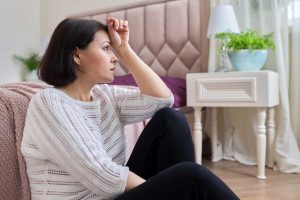
Symptoms
Symptoms You are not alone! Approximately 85% of women report menopause symptoms. Source: Agency for Healthcare Research and Quality (US) The menopause journey can impact you from head to toe. Sometimes, it’s a specific area and other times, you’re feeling it all over like itchy skin or muscle aches. With a seemingly endless list of
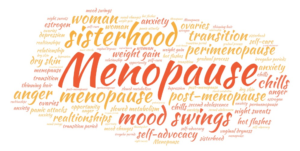
Menopause Stages: Signs And Symptoms Of This Natural Stage Of Life
There are several menopause stages, and each brings its own set of symptoms. Learn the signs of menopause, and how to manage the journey.

